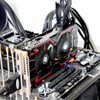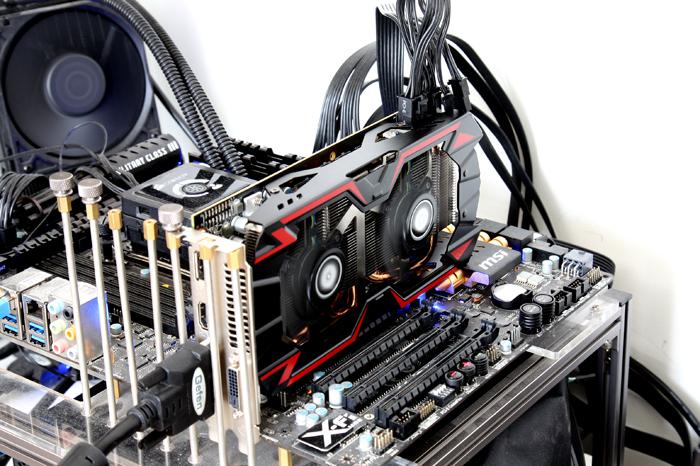Introduction
PowerColor Radeon R9 285 TurboDuo - Tonga has arrived
In this review we look at the new PowerColor Radeon R9-285 TurboDuo. Armed with an ultra silent cooler this Tonga GPU based product bring you high-end gaming at a price of 249 USD - With 2GB of graphics memory you can game with good image quality settings at Full HD. Follow us into this review where we'll look at temperatures, noise, performance and go with the latest game titles on the globe.
So as mentioned in the first paragraph, the Radeon R9 285 is based on a the new Tonga GPU. It's still built on the 28nm node from Global Foundries and features bit of a re-design applying the latest architectural improvements. A big focus of the Tonga GPU is actually power efficiency as we'll show you in this review. Tonga retains the basic technologies of the Radeon lineup such as Mantle, TrueAudio and XDMA for CrossFire support. The GPU actually has 2048 shader processors running over 32 compute units with 128 texture memory units.
The initial consumer graphics card based on Tonga now is the Radeon R9 285, it has 1792 activated stream processors making it perform at GeForce GTX 760 and Radeon HD 7970 level performance levels but with better thermals and lower power consumption. Performance wise this product is going to sit in-between the 280 and 280X. Most of the cards will have two 6-pin power PEG (PCI Express Graphics) headers to give the tweaking experience a little more room next to the 4+2 PWM phase power design. Overall a great card to play the latest games with whilst offering a good memory size versus good price versus the Full HD / 1080P monitor resolution. AMD actually releases the card as the perfect WQHD (2560x1440) resolution gaming alternative at the 250 USD level.
We review the PowerColor Radeon R9 285 TurboDuo. A product with a very silent dual-fan cooler, customized PCB and factory overclock at 945 MHz on the GPU core clock frequency 1375 / 5500 MHz on its 2 GB GDDR5 memory. Head over to the next page where we'll start-up a photo-shoot first though.


